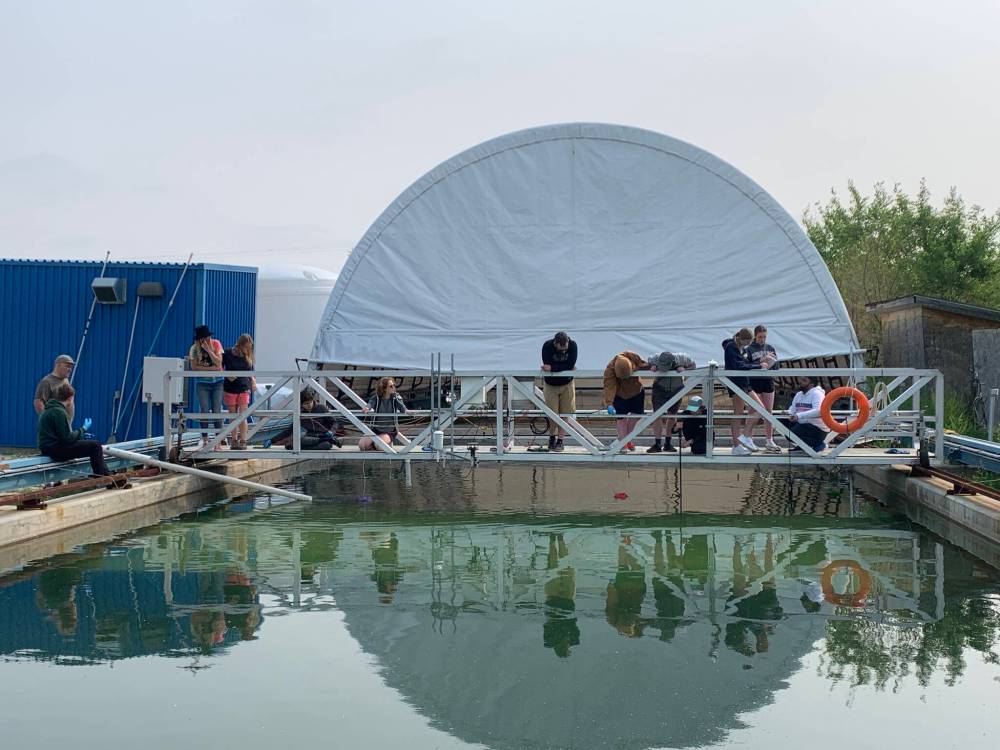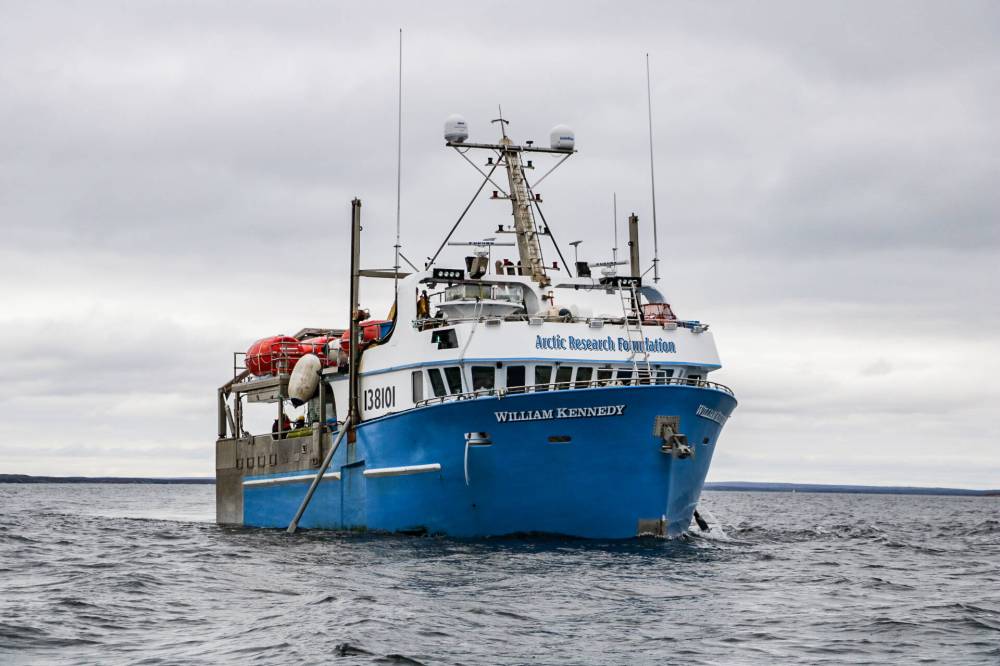Manitoba’s first marine research facility is expected to boost industry, jobs and knowledge in the northern community of Churchill.
The University of Manitoba celebrated the grand opening of the Churchill Marine Observatory Tuesday, located near Hudson Bay, the only Arctic deep-water port in North America and the first of its kind in the world.
The facility will help detect and mitigate oil spills while also researching how to support Arctic marine transportation and climate change.

UNIVERSITY OF MANITOBA
The Churchill Marine Observatory is the first of its kind in the world.
“It’s really great to get out and understand and further learn about it,” said Brendan McEwan, director of operations for Frontiers North Adventures, a Churchill travel company. “I’ve known about the wildlife and the area but to get out and hear it from a different perspective and dive a little deeper into it is really great.”
McEwan, who is also president of the Churchill Chamber of Commerce, said the observatory will create more opportunity in the town of nearly 900.
The observatory, funded in part by $45 million from the Canada Foundation for Innovation and the provinces of Manitoba and Alberta, has three main focuses and facilities.
The Ocean-Sea Ice Mesocosm uses outdoor pools for controlled experiments of oil spills.
The Environmental Observing System is a series of moorings placed along the shipping route in Hudson Bay. Sensors are able to monitor salinity, temperature, currents and water quality.
The William Kennedy research vessel can hold a dozen people on board and is run in partnership with the Arctic Research Foundation. Because of its smaller size, the ship is able to host research expeditions along coastal environments.
C.J. Mundy, professor of biological oceanography at the U of M, said changing ice cover means potential for more shipping, which is already being seen across the Arctic. With that comes the potential for accidents, like oil spills or the introduction of invasive species.

UNIVERSITY OF MANITOBA
The William Kennedy research vessel hosts expeditions.
“We’re at a timely position having this set up to be able to provide research on the issues to be able to provide decision makers (with) the right information that they need,” Mundy said over the phone from a Churchill hotel. “The potential for the research I think is (coming) at the right time and will be helping push Canada, and the province in particular, towards economic opportunities.”
Mundy said he spent the first half of his career convincing people why oceanography should be studied in Manitoba.
Churchill Mayor Mike Spence echoed those sentiments, adding many don’t consider Manitoba a maritime province.
“People forget that Manitoba has an ocean on its northern border, so this is a strength for us all,” said Spence. “We’ll continue to do our part in terms of showing the path forward.”
jura.mcilraith@freepress.mb.ca